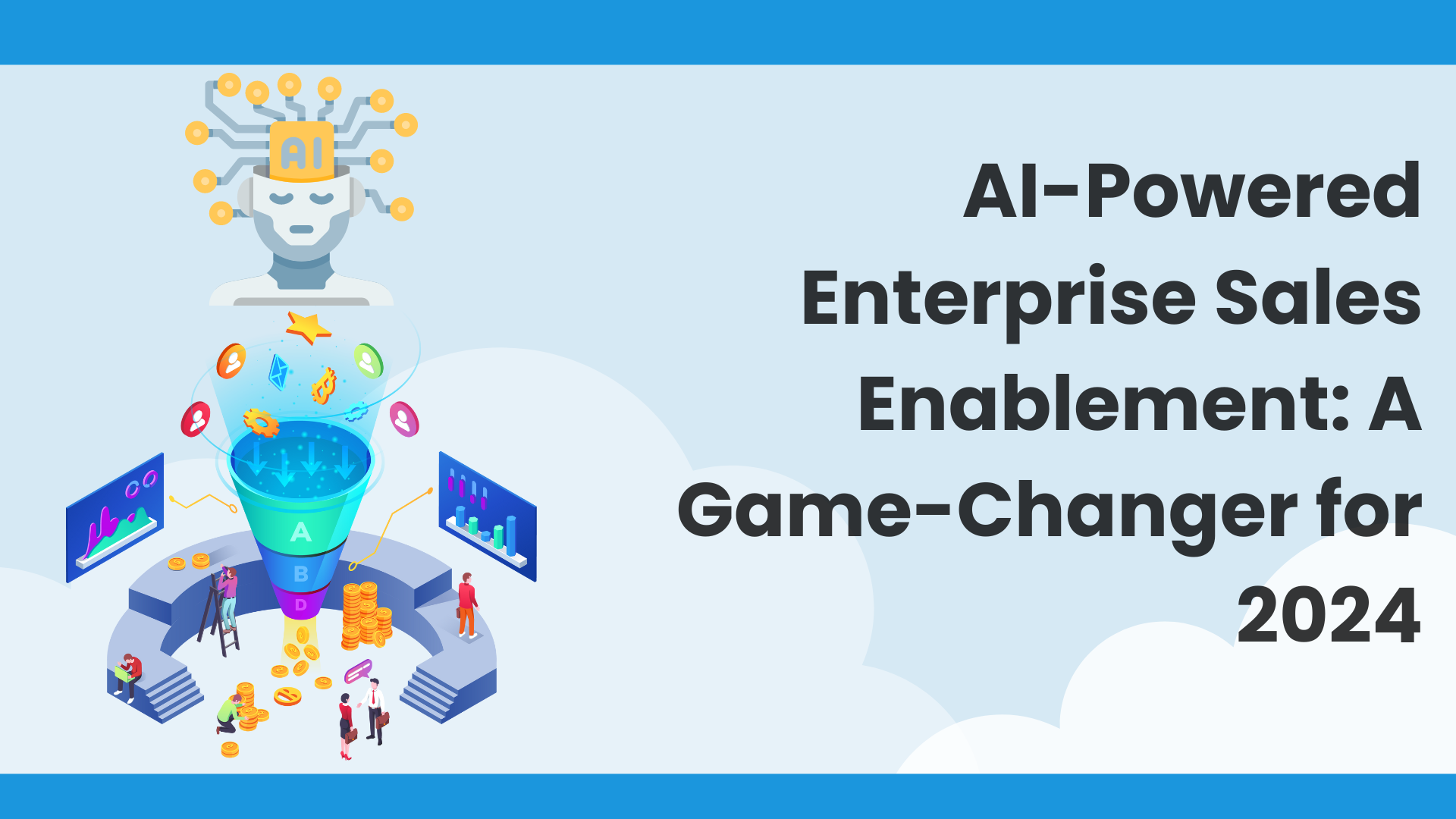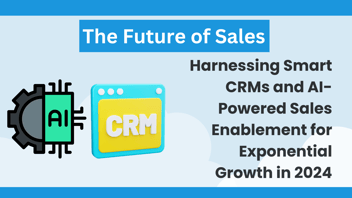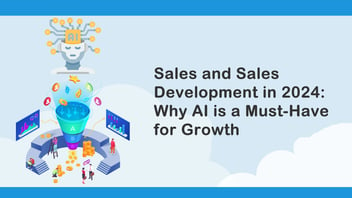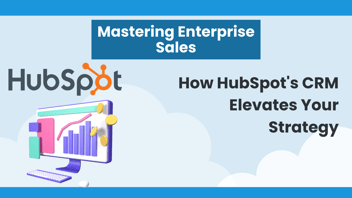Adapting Sales Strategies in the Era of Tighter Budgets
As companies' budgets begin to ease, sales teams must adapt their strategies to meet the changing financial landscape. One effective approach is to focus on providing value rather than just selling a product or service. By demonstrating how their offerings can address specific pain points and deliver measurable ROI, sales professionals can build a stronger case for investment.
AI-powered tools can assist in this process by identifying the most relevant use cases and success stories for each prospect. Additionally, sales teams can use AI to develop personalized proposals and presentations that resonate with decision-makers, further increasing the likelihood of closing the deal.
In 2024, sales leaders aimed to enhance the efficiency of the sales process, driven by the necessity to optimize resources following a challenging economic year. The focus on efficiency translated to achieving more with less, streamlining workflows, and leveraging data-driven decisions to improve outcomes without incurring additional costs. Teams embraced AI-driven solutions to automate repetitive tasks, improve communications, and gain insights into customer behaviors. These AI tools became indispensable in helping sales professionals prioritize their efforts and concentrate on high-value activities.
65% of BDRs see AI as a helpful tool, recognizing it as a facilitator rather than a disruptor. (Source: 6sense) Companies can now monitor and adjust enablement programs in real-time using metrics like win rates, pipeline generation, ACV value, and customer satisfaction. (Source: Salesforce) AI enables real-time monitoring of sales performance based on important metrics like ACV value, win rates, and customer satisfaction. (Source: Scratchpad) Moreover, 88% of organizations believe that AI vendors should provide guidance and support around AI initiatives. (Source: Seismic)
The advancement of AI technology in 2024 promises to further boost efficiency and speed. Anticipated innovations include enhanced predictive analytics, more intuitive customer relationship management systems, and improved personalization of sales interactions. These developments will automate a greater number of tasks, reduce manual labor, and enable sales representatives to focus on relationship building and closing deals. Additionally, integrating AI with technologies like augmented reality and the Internet of Things (IoT) will elevate customer engagement and personalization. The evolution of AI tools is poised to revolutionize sales, making operations more efficient and teams more effective than ever before.
Nurturing Strong Client Relationships for Long-Term Success
Building and maintaining strong client relationships is essential for long-term success in sales. According to a recent survey, 82% of sales professionals say that building relationships and connecting with people is both the most important part of selling—and the most enjoyable part of their job. Referrals from existing customers are one of the top ways sales teams receive high-quality leads.
To nurture these relationships, sales teams must stay engaged with their clients even after the sale is closed. AI tools can help by automating follow-ups, sending personalized content, and tracking customer satisfaction. By staying top-of-mind and providing ongoing value, sales professionals can foster loyalty and encourage repeat business.
Examples of AI Tools Enhancing Post-Sale Engagement
Automating Follow-Ups- HubSpot Sales Hub: This AI-powered tool can schedule and send automatic follow-up emails, ensuring clients receive timely communications without manual effort from sales reps.
- Salesforce Einstein: With features like predictive follow-up recommendations, this tool helps sales teams engage with customers at the most opportune times, boosting response rates.
- HubSpot Marketing Hub: This powerful platform empowers sales teams to automate follow-up emails using AI-powered scheduling and sending features. This ensures timely communication with clients without requiring manual effort from reps.
- Marketo: This AI-driven marketing automation platform can segment customer lists and deliver personalized email campaigns based on individual customer behavior and preferences.
- Mixpanel: By analyzing user interactions and behavior, Mixpanel allows sales teams to send highly targeted content that resonates with customers' specific needs and interests.
- HubSpot Service Hub: This powerful CRM platform offers built-in customer satisfaction surveys and ticketing systems. You can leverage these tools to collect valuable feedback directly within your HubSpot environment, streamline post-sale communication, and ensure customer delight.
- SurveyMonkey: Integrated with AI analytics, SurveyMonkey sends automated surveys post-purchase and provides insight into customer satisfaction levels, enabling sales teams to address any issues promptly.
- Medallia: An advanced customer experience management platform that uses AI to analyze feedback from various channels, Medallia helps businesses monitor satisfaction and identify areas for improvement.
Sales teams can vastly improve their post-sale engagement strategies by applying the methods and technologies mentioned above. This approach guarantees consistent and personalized communication, leading to high levels of customer satisfaction. AI-driven insights enable sales professionals to develop data-informed strategies that enhance their capacity to nurture and retain client relationships, solidifying their status as trusted industry leaders.
Equipping Sales Teams for Success: A Comprehensive Approach
Equipping sales teams for success begins with expert guidance in establishing a robust Revenue Operations (RevOps) infrastructure, followed by the strategic integration of advanced sales enablement technologies. At the core of revenue enablement lies a holistic approach that includes meticulous strategic planning and leveraging the expertise of seasoned solution providers. This methodology ensures the provision of essential resources and tools designed to boost productivity and effectiveness.
Incorporating AI-driven platforms can further amplify these efforts. For instance, generative AI can produce compelling content such as emails and presentations, while predictive sales analytics can prioritize high-value opportunities. Additionally, conversational AI can enhance communication and streamline the sales process, ensuring a seamless and efficient workflow.
By employing these sophisticated technologies and strategies, organizations can establish a strong foundation for sustained sales performance and growth.
Roadmap for 2024 Sales Enablement Methods
1. Adopting Agile Sales Methodologies
Agile methodologies encourage sales teams to work iteratively and collaboratively, promoting flexibility and continuous improvement. By employing shorter sales cycles, enterprises can quickly adapt to market changes and customer needs. Implementing regular stand-up meetings, sprint planning, and retrospectives will enable sales teams to reflect on their performance and make necessary adjustments to their strategies.
2. Integrating AI-Powered Tools
AI-powered tools offer transformative capabilities for modern sales teams. Organizations can integrate technologies such as predictive analytics to identify high-value opportunities, generative AI to create personalized content, and conversational AI to streamline communication. By leveraging these tools, enterprises can automate routine tasks, uncover deeper insights, and enhance their decision-making processes.
3. Establishing a Centralized Data Hub
Creating a centralized data repository ensures all teams within the organization have access to accurate and up-to-date information. A unified CRM system combined with advanced data analytics platforms allows teams to view real-time metrics and collaborate effectively. This centralization aids in improving data transparency, tracking key performance indicators, and facilitating a data-driven sales approach.
4. Enhancing Cross-Departmental Collaboration
Sales enablement in 2024 underscores the importance of syncing sales with other departments such as marketing, customer success, and product development. Encouraging cross-functional teams to work together on shared goals can lead to improved customer experiences and better alignment on objectives. Regular inter-departmental meetings, shared platforms, and integrated processes help break down silos and foster a collaborative work environment.
5. Focusing on Continuous Learning and Development
Investing in continuous learning and development programs is critical in keeping sales teams up-to-date with the latest trends, tools, and techniques. Incorporating AI-driven learning management systems can offer personalized training modules tailored to each individual’s needs. Regular workshops, certifications, and access to industry resources ensure that sales professionals remain skilled and knowledgeable, contributing to their overall success.
6. Implementing Metrics-Driven Management
Measuring success with precise metrics allows organizations to refine their sales strategies and improve performance. Tracking key indicators such as win rates, customer acquisition costs, and average deal sizes provide valuable insights into what is working and what isn’t. Deploying AI analytics can offer predictive insights, fostering a proactive approach to managing sales pipelines and achieving targets.
7. Personalizing Customer Interactions
In 2024, personalization is paramount to engaging and retaining customers. Utilizing AI-driven insights to understand customer preferences and behaviors enables sales teams to deliver tailored experiences. Personalized follow-ups, custom content, and bespoke solutions ensure that customers feel valued and understood, significantly enhancing satisfaction and loyalty.
By adopting these methods and realigning their structure and processes, enterprise organizations can harness the latest sales enablement techniques to drive productivity, enhance customer relationships, and achieve sustained growth.
Cultivating a Winning Sales Culture in the Hybrid Work Era

The hybrid work model is here to stay, and sales teams must adapt to this new reality. Hybrid teams are 28% more likely to outperform fully in-person or fully remote teams, highlighting the importance of flexibility and adaptability. To cultivate a winning sales culture in the hybrid work era, organizations must invest in technology and practices that support collaboration and communication.
AI-driven tools can facilitate seamless collaboration among team members, regardless of their location. Virtual meeting platforms, project management software, and communication tools are essential for maintaining productivity and engagement. Additionally, sales leaders should focus on creating a supportive and inclusive culture that encourages innovation and continuous learning.
Conclusion
As we look ahead to 2024, the integration of AI in enterprise sales is not just an option—it's a necessity. By leveraging AI-powered tools and strategies, sales teams can overcome the challenges of the current landscape, meet the demands of informed buyers, and drive long-term success. From streamlining administrative tasks to enhancing client relationships, AI is a game-changer for enterprise sales enablement.
Ready to take your sales strategy to the next level? Explore the potential of AI in enterprise sales by integrating these cutting-edge tools and techniques into your workflow. By doing so, you'll position your team for success and stay ahead of the competition in the ever-evolving sales landscape.
About CETDIGIT
CETDIGIT empowers businesses of all sizes – private companies, government agencies, and nonprofits – to unlock transformative business automation, RevOps, and digital evolution. As a certified Salesforce and HubSpot Elite Partner with a stellar 5-star rating, we deliver exceptional service and measurable results.
We combine expert consulting and strategic design with seamless implementation of robust automation solutions in Salesforce and HubSpot. We don't just implement – we empower your team with comprehensive training and ongoing support. Additionally, our innovative digital marketing strategies help you reach your target audience and drive lead generation. Partner with CETDIGIT and experience the power of a holistic approach to achieving your organizational goals.






 answers potential customers' questions and addresses their concerns.
answers potential customers' questions and addresses their concerns. 




Leave a Comment